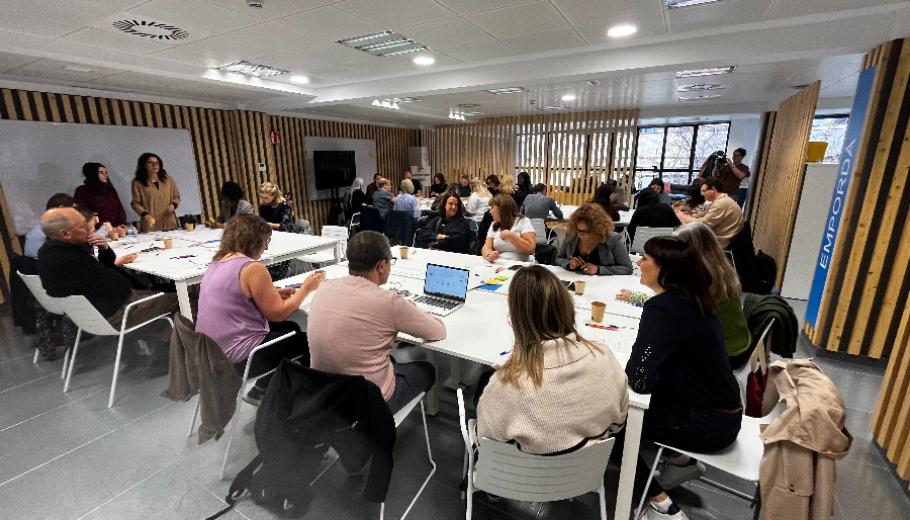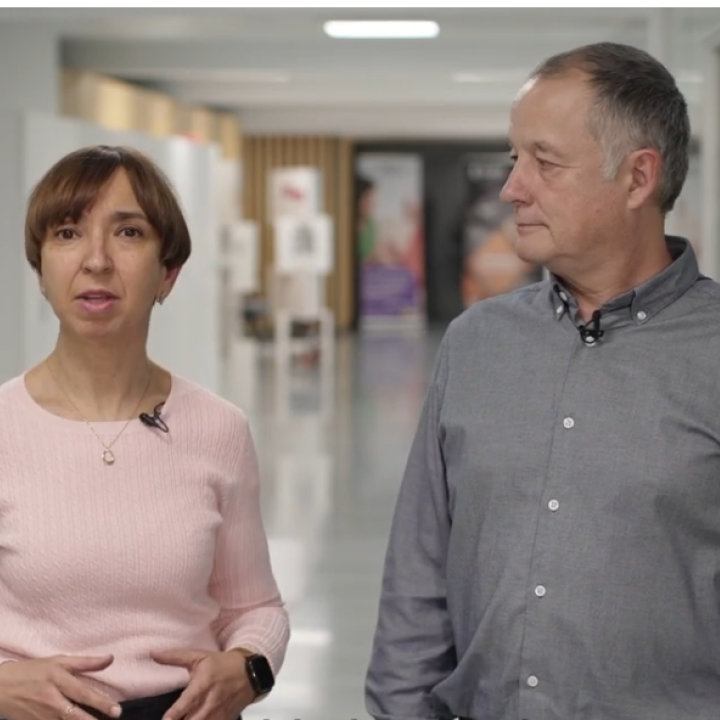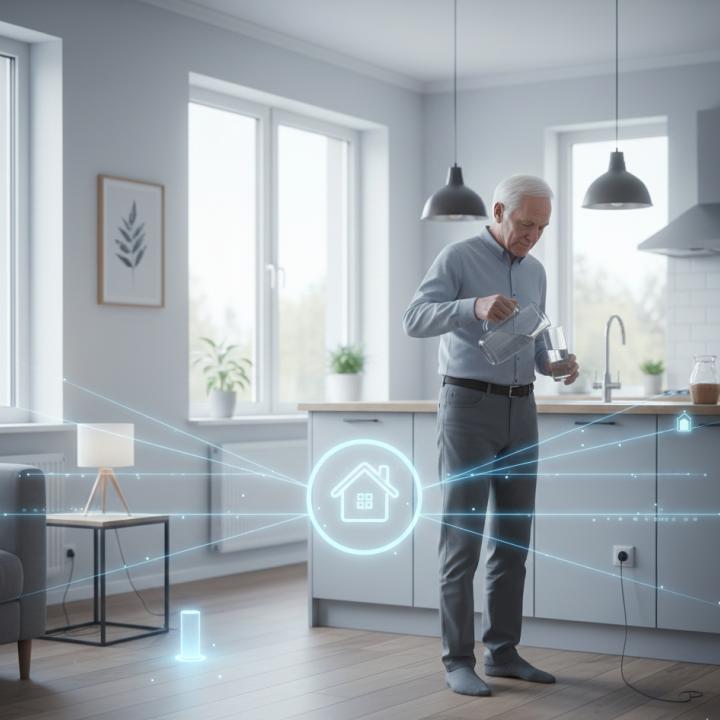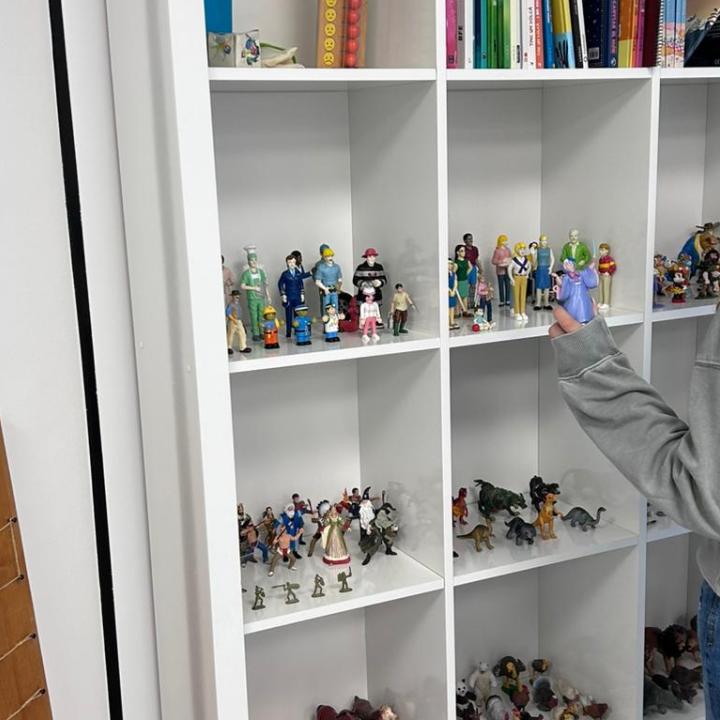At Suara cooperativa we have participated in a knowledge exchange with E3M, an initiative that promotes innovation in public services in the United Kingdom.
This exchange took place between several British cities and Barcelona, with the aim of sharing experiences and innovative practices in the field of social services and cooperation. Below we summarize the experiences that have been highlighted by the E3M in its Suara Learning Report, which has emphasized the innovative nature of Suara and its purpose to transform the social environment through services that accompany people during its entire life cycle.
- Immersive reality in Suara
One of the most outstanding experiences of the exchange between Suara and E3M was the visit to the immersive reality rooms in Barcelona, Amposta and Olot. These rooms are used to improve people's physical, emotional, psychological and cognitive well-being. At Suara's headquarters in Barcelona, delegates saw stimulation programs for the elderly, wellness sessions for young people and mindfulness training for employees. Suara is also collaborating with the Consorci Hospitalari de Terrassa in a pilot study on virtual reality and mental health.
Suara's innovative project includes training the people who work there in the use of immersive reality in therapeutic sessions for children and young people. According to Natàlia Alonso, head of immersive and virtual reality at Suara, this technology makes it possible to live simulated experiences that improve physical and emotional health, prevent cognitive degeneration and help overcome migration grief. Thus, the immersive reality rooms are a key tool in Suara's mission to transform the social environment with innovative services.
- Innovation in the care of the elderly
Another experience highlighted by E3M was Suara's proposal for innovation in elderly care, which includes person-centred home, medical and social care services. E3M delegates visited SAD Barcelona, a home care service that provides personalized support in household tasks and personal needs, as well as palliative care, home health care and innovative telecare systems.
They also visited the Camí Antic, homes designed for the elderly, where they learned about the 'Vincles BCN' project. This project, developed with the participation of Suara, uses a tablet application that helps to break the social isolation of older people, connecting them with family, friends, carers and volunteers. The user-friendly interface also allows seniors to connect with other residents in the area, facilitating face-to-face meetings with support from the Suara team.
- Children and young people
Another of the experiences was the visit to the services for children and young people managed by Suara in Figueres and Girona. The E3M delegates visited the Lilaina Municipal Kindergarten, an open and innovative center for children aged 4 months to 3 years, and the Mar i Cel Kindergarten, which encourages experimentation, play, music and the participation of parents in the education of their children.
They also got to know the Open Center of Girona, the socio-educational service for children and adolescents aged 3 to 18 and their families. This center supports children's development, socialization, learning and leisure, with individual, group and family work. "In the UK, when children enter the care system, they talk about institution, unity, reception. Here, it's about giving children an anchor, a home, even in nurseries, it has to to be a home away from home. It develops children's sense of belonging, ownership and responsibility," said Rachele Parker, one of the attendees from the United Kingdom.
- Children and young people at risk of exclusion
E3M delegates visited services managed by Suara in Amposta, Tarragona, such as the residential reception centre, an educational housing service for young people aged 16 to 18 and a Child Development and Early Care Center (CDIAP). They saw places where 18- to 21-year-olds live independently, a center where 10 16- to 18-year-olds live with supervision, and a center that offers treatments such as physiotherapy and psychology to children up to six years old with speech problems or the development.
"It was fascinating. I really enjoyed meeting the young people and seeing the passion of the staff in helping them live independently, find work and manage budgets. There was a real connection, like a family. Suara is a leader in trauma therapy for whole families . Learning from them about how they support people was very interesting, and I hope they learned from us as well. Our staff is committed and passionate, just like Suara's." said Parker, Director of Operations at LEYF.
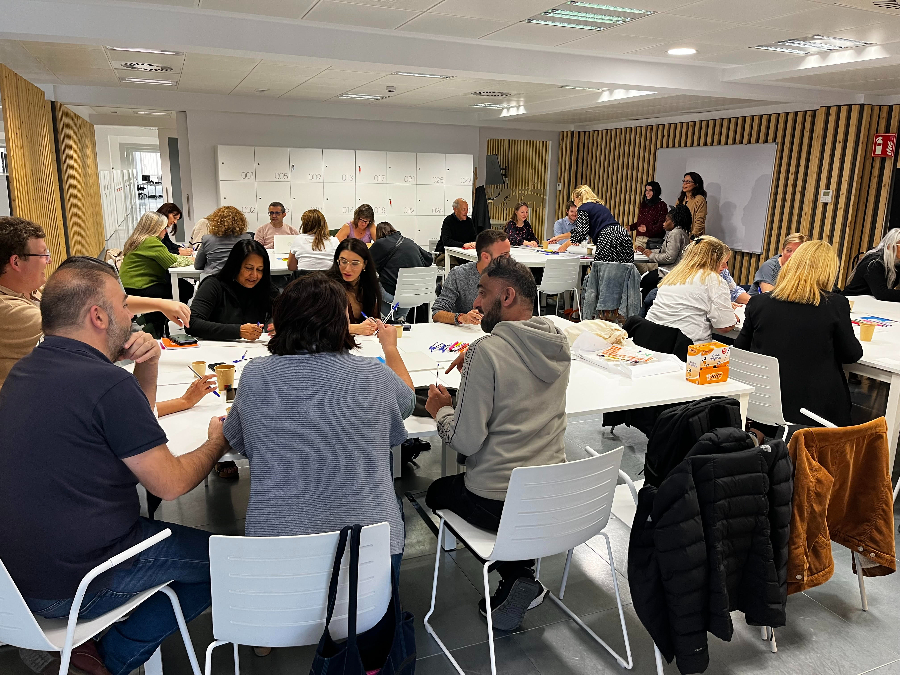
- Fight homelessness
There are around 25,000 homeless people in Catalonia, and Suara offers a "housing response" to 2,913 people in Barcelona. The facilities visited by the E3M delegates were as follows:
L'Equipament Integral Zona Franca, a center for 100 people with the "Primer la Llar" project.
The First Reception Center Sarrià, which now welcomes 100 women, with meals, showers, community activities and a therapeutic garden.
The Sara Center in Sabadell, with 15 beds for homeless people with HIV, offering individualized support plans.
Charlie Mack, CEO of Cranstoun, highlighted the person-centred approach and quality of facilities: "We were impressed by the way Suara elevates the quality of accommodation and support offered." Suara uses models like Housing First to offer a stable home to people in chronic exclusion.
- Evolution of Big Life's community service
Big Life Group started in Manchester in the 1990s with initiatives such as syringe exchange and family support, aiming to provide services tailored to real needs.
Suara delegates visited the Zion Centre, one of the starting places for Big Life, which now offers self-help groups, community activities and a Community Café that reduces food waste with low-cost meals. They learned about the Be Well social prescribing service, the Achieve service and the Life Lines project. The delegates found the visit "very rich" and valuable for learning how to work on similar projects in different contexts.
- Promoting social mobility and opening paths
On behalf of Suara cooperativa, Marta Julián Pascual and Sergi Fortià Darder visited Career Connect, to find out how organizations in the United Kingdom help young people, adults and people with criminal records to access employment and education. They explored the St Joseph's Bike Project, the Achieve project at HMP Hindley, and the Greater Manchester Employment, Training, Education project. Marta Pascual highlighted the use of digitization and innovation in services.
They also visited Big Life's Zion Centre, Bryson Charitable Group in Belfast, Catch 22's Community Links Barking Hub, and several other projects including the London Early Years Foundation's Nursery and Little Pioneers Maida Vale. "It is important to get ideas from different countries to improve here and learn.", agreed, in this case, the delegates of Suara cooperativa.
- Participation: a path, not a goal
E3M delegates discovered Suara's social participation model and legal support for cooperatives in Catalonia. Mary Lewis of Sirona Care & Health highlighted: "Suara's participation model is impressive and is legally integrated in Catalonia, while in the UK we talk a lot about integration but without so much formalization."
Better Society Capital's Carolina Pinzon added: "We can learn a lot from the system here and apply it to the UK, fine-tuning our investments to achieve real impact."
Next steps
Therefore, the participating people have integrated the knowledge acquired in the respective organizations and we hope to continue with the collaboration and the exchange of knowledge. Suara has continued to be in contact with E3M to deepen innovation and participation.
The return of the participants reflect the positive impact of the experience: “It was brilliant, the Suara team put in a lot of effort and made us feel very welcome. I would participate again and recommend it” and “I loved this opportunity because it gave me a greater insight into the practices and allowed me to reflect on my own ways of doing things.” This collaboration will have continuity and we hope to deepen our relationships and learn together. It is important for policy makers and commissioners to learn from this exchange to accelerate the difference social enterprises make to public service delivery.


